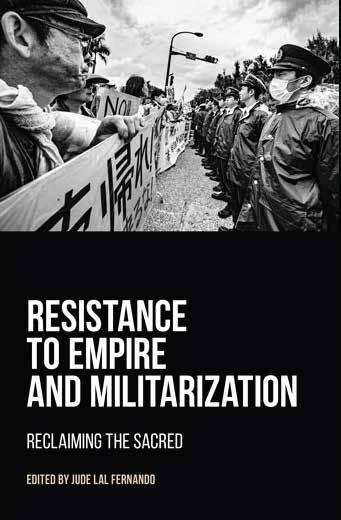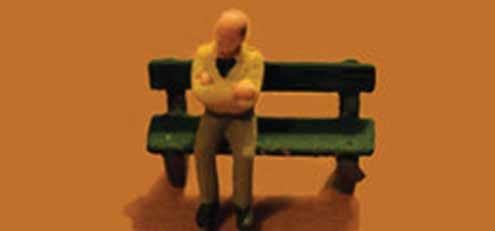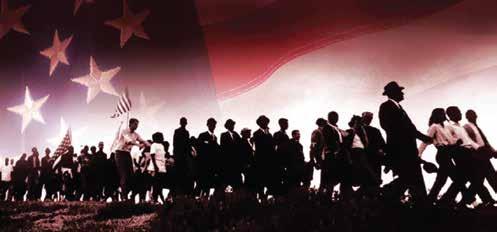
17 minute read
Called to Serve
by Lalbiakhnemi
Lalbiakhnemi is the only female pensioner (former women’s secretary) of Phai Synod, PCM. She grew up among Burmese-speaking people and hardly speaks her mother tongue - Mizo. But she came to Phai Synod and served her synod since she knows that language barriers will not make her stop serving God and women in the church.
was born in a famous, beautiful town called Pyin Oo I Lwin. For the glory of God, I have spent most of my good life serving God especially with Christian Women’s ministry. Currently I am holding the following ministerial positions: (1) Vice Chairperson of Presbyterian Women’s Society (PWS), Tahan Venglai Unit, (2) President of Presbyterian Women’s Joint Conference (PWJC), Phai Synod, (3) President of Kalay Christian Women’s Fellowship (KCWF). As for my educational background, I completed my G.Th (1989-1992) and B.Th (1995-1997) study at Tahan Theological College.
The reason why I pursued theological study was to dedicate my whole life to serve God. I started ministry when I became the Women’s Secretary of Phai Synod in 1999, the post I worked in till I got my pension in 2016. Currently I live in Tahan town with my family. My husband’s name is Mr. Suithanga. God has blessed our marriage with a beautiful daughter, Jenny Lalengmawii.
Many of God’s people have inspired me a lot. The one who inspired me the most is Rev. Moe Moe Eih, a minister from the Upper Methodist Church. I admire her very much for her great commitment in her ministry and for being a respected, influential pastor. Some of the things which made me admire her were the way she looked in her minister dress, her neat and perfect Eucharist performance as well as her good and spiritually touching preaching. I once told her, “I want to be a minister like you!”
I would like to share the reason why I dedicated myself for God’s ministry. Back when I was in my old town, May Myo (Pyin Oo Lwin), I met a minister. After he prayed for me, he told me, “You are chosen to serve God. If you deny or hesitate by walking out on God’s ministry, God will call you out anyway through certain hardships in your life.” At that time, however, I
didn’t believe him; furthermore, I didn’t want to commit to the ministry. Afterwards, difficulties and hardships always followed me in everything I did. Finally, I gave in and answered God’s call to serve.
Phai Synod supported my entire study expenses. Since I was born and raised in a Burmese community, I couldn’t speak the Mizo language (which is the first language in our church ministry) very well. During the final year of my study I asked God to make me fluent in the Mizo language. God answered me with a question, “Do you want to be fluent in language, or instead have my words come out of your mouth?” At that time, my vision was enlightened and I began to realise that in order to serve God, my commitment was sufficient: God is able! During my entire 17 year career, God’s unceasing care has been unbelievable, so great towards me.
In all of my preparation for training sessions and preaching, God always filled me with necessary knowledge and experiences relating to the topics I was preparing for. I would then share my experiences in the training sessions, from which I myself gained lots of empowerment. When I visited the local churches, the Lord helped me understand the true nature and condition of those churches, and gave me insight into how to empower their weaknesses as well as ways to bring unity among those who were not united. My Lord always provided me with words to speak out in those situations. Sometimes after being well-prepared to preach, God would suddenly change the topics and words I was supposed to preach. I can only wonder how much my God has been guiding and protecting me throughout my ministry!
On some occasions, out of my high expectations for a better future, I might have used harsh and strong words for the purpose of encouraging unity among women leaders. Every time I did something like that, I felt sorry that I might have hurt their feelings. So I prayed to God to heal their hearts and to bring peace upon all of us. It was only later that I found out that those tense moments brought better mutual understanding and a closer connection among us.
Thinking about the place where God has put me now, I am happy and full of joy. I believe God has honoured me so much. Knowing that there are lots of things in our ministry we still need to improve on, I feel sorry that my full-time ministry has come to an end. I believe God has recognised and blessed my humble contribution in the ministry for many reasons. God has been using the words from my mouth to touch people’s hearts. I have also never really faced big troubles with my physical health so far, and my family (my husband and children) has been very supportive of my ministry, especially my husband who has been a tremendous help and encouraging partner. Even though I am just a working staff of a single Synod (Phai Synod), I have had the huge privilege of visiting all ten synods and mission fields of the church.
In 2001, when I visited the Rakhine mission field, I gave four training sessions in different places. One of my biggest struggles at that time was that there was no toilet at all; we had to go to the nearby bushes to answer nature’s call. Additionally, there were lots of bugs in our sleeping places. Those were new experiences for me and I found them very difficult to adapt to. However, when I think back on those moments, I realise that those are the best memories which made my life more interesting and joyful. I will never forget those beautiful memories
I recognise that things changed very quickly during the period of my ministerial service. When we visited our ministry fields previously, sometimes we had to go on foot, sometimes on local ox carts, bicycles, cars, trains, ships and even boats. These days, we can now make visits with nice cars. But I can confess that the experiences in the past with rough transportation were my best experiences. Another thing I had to struggle with during rural visits was the food. The food was for the most part a cultural shock to me because what we ate in the field was very different from what we had every day at home. An amazing fact was that I never had any stomach problems because of food. When I think back on all of these, I can only praise God’s unfailing love and care throughout my ministry.
My dream for the future of women in the church is this, that most of us housewives, who are the ones managing, teaching, guiding and arranging things in our household, can show and carry over what we do in our own household to the wider environment (the church and society). This is so that we will become more important and productive contributors in church ministry and community development.
During my ministry, I gave several trainings in different local churches on certain topics that people received great benefit from. Some of those topics are:
The motto and calling of PWS: Only when we realise our calling as the women’s society of the church will we be able to improve and move forward. The importance of ministry at the global level: Since we are a small number even at the national level, only when we hold hands with other churches and women’s ministry bodies in the country will the world hear our contributions.
The importance of mothers in a Christian Family: This is the most frequently taught topic in my ministry. With more detailed and constructive sub-topics, we learn how women can become more effective and productive contributors in the church and community. Child Care (Parenting): Due to poverty and the lack of proper education, there are many mothers who have difficulty in their parenting journey. We train and empower those mothers, meeting their needs with different topics.
Leadership: In spite of their great contributions in the family, women are given few leadership roles both in the church and the community. This results in lower status and seemingly less confidence among women to stand up and take up leadership when needed. Therefore, we organised women leadership trainings on several occasions. Economics: Wherever we may live, women need to know how to properly manage family finances. Though our income could be very little, it is still very important that we have knowledge and experience of how to generate income lawfully. Women empowerment: No doubt the church and community are run in a very patriarchal tradition; women can easily be oppressed and exploited. Therefore, it is a very urgent and important agenda for us to protect the rights of women according to the teaching of the Bible and universal human rights.

With a thankful heart, I testify that my life and everything I have done are gifts from the almighty and merciful God. Through the church, I have served my Lord this far. The church is my father and my mother; I will be forever grateful to the church for giving me the chance to serve my Lord.
My message to fellow women:
I want to say that our families and the world are in the hands of the mothers. It is the mother who will make sure the family she is building is a true Christian family. From that point of view, we the mothers are the ones who make the world a better, peaceful place to live in. One thing we need to give much attention to is child abuse, which is now a big issue around the globe. To protect our children from abuse and drug addiction is now a big task for all mothers. Let us remember that if we hold hands, pray and stand together, we can protect the safety of our children’s future. We know we have strong and effective women’s rights and protection laws, so let us study them and use them to help and liberate all the women around the country who are suffering and being oppressed in many ways.

The newly launched “Resistance to Empire and Militarisation” gathers critically reflective articles by 25 leading and emerging scholars/practitioners from religious and non-religious backgrounds, representing three generations of survivors of imperial invasions and genocidal massacres across the globe. The authors interrogate and expose the oppressive religious and secular ideologies and mechanisms of the modern empire and its allies that cause desecration of lives and the earth through various means, ranging from psychological operations to the brute force of advanced technological warfare. Offering perspectives from the Middle East, East Asia, South Asia, Africa, Latin America, and the Pacific and the Caribbean Islands, the authors address topics such as mass killings, starvation, rape, militarised prostitution, torture, forced disappearances, land grab, displacement and the destruction of nature, while articulating people’s inherent collective aspiration for liberation that is expressed in multiple languages of faith as well as in secular humanist strands. They help evoke and sharpen the alternate consciousness among peoples in furthering resistance, and in envisioning and building a non-imperialist future for us, for our children, and for our planet. These are testimonies of truth and liberation, written with a prophetic urgency. “This book contains extraordinary material. It is a brilliant mix of interpretation and realisation by outstanding thinkers, activists and intellectuals from many walks of life and origins as to what a world at peace requires. The language and its scope is fascinating and gives one hope that with such clear minded people spread across our globe progress towards peace for all humanity and success thereof is indeed possible.”
— Dr. Denis Halliday, former Assistant Secretary General of the United Nations who resigned from his 34 year old career in the UN in protest of the economic
sanctions imposed on Iraq by the Security Council
“This book, which is based on the authors’ concrete actions and commitment for liberation, clearly shows that the fundamental causes of ethnic and regional conflict, poverty, socio-economic and gender inequalities, discrimination, exploitation, and environmental destruction, in the non-Western, Three-Fourths World, are imperialism and militarism. At the same time, the authors invite us on a journey of overcoming imperialism and militarism to save humankind and nature, and to a life of peace, restoring our divinity and humanity.”
— Prof. Kim, Sung-Jae, President of Kim Dae-Jung Nobel Peace Prize Memorial, Distinguished Professor, Hanshin University, Former South Korean Minister of Culture and Tourism
“An exceptional book in three senses: one, in the conception of empire and militarisation as an encompassing reality that goes beyond the use of force to show its political, ideological and cultural dimensions. Two, a reflection that covers phenomena and studying the experiences of resistance to empire in the countries of five continents. Three, in the variety of authors that includes prestigious academics as well as resistance activists, who have in common a vision committed to fighting the devastation of human life and the earth that has been perpetrated by imperialism and its basis and reason for being: capitalism.”
— Magdalena Galindo, Professor in the Faculty of Economics, Universidad Nacional Autónoma de México
The first book from Discernment and Radical Engagement (DARE) 2019, which is edited by Miguel A. De La Torre and Mitri Raheb, is now available for pre-order.

In Resisting Occupation- A Global Struggle for Liberation, international scholars discuss the radical denial of human flourishing caused by the occupation of mind, body, spirit, and land. They explore how religious perspectives can be, and often are, constructed by occupiers to justify their actions, perpetuate exploitation, and domesticate indigenous landholders.
In the name of Christianisation and civilisation, which has proven to be a global phenomenon beyond time and space, a consistent domestication process is established. The colonised are taught to want, to yearn for, and to embrace their occupation, seeing themselves through the eyes of their colonisers.
Writing from different spots around the globe, the scholars of this book demonstrate how occupation, a synonym for empire, is manifested within their social context and reveal unity in their struggle for liberation. Recognising that where there is oppression, there is resistance, the contributors turn to religion. While questioning the logic, rationale, theology, and epistemology of the empire’s religion, they nonetheless seek the liberative response of resistance – at times using the very religion of the occupiers. “The documentary, CUT BACK: facing ageism, brings to light the often subtle and the not so subtle sting of ageism. With her focus on the workforce director Patricia Sahertian takes a look at a diverse group of people across the nation who have been affected by age discrimination. In their own words, they tell their personal story about how ageism has touched their lives. The stories are interspersed by comments from lawyers, advisers, employment specialist and many more who are trying to make a difference about the effects of ageism.”

https://bit.ly/2JciXg5 Robert Reich provides the middle class his voice, speaking on behalf of them on the issues of the widening income gap and how it has a devastating impact on the American economy. The film follows the man on his journey of great personal adversity, navigating through obstacles in finding protection for those who aren’t capable of protecting themselves from the inequalities of powerful and obscenely rich. http://inequalityforall.com/ With over 10 million Africans who were forcibly subjected to the Atlantic Slave Trade to the Americas and Europe, this appalling form of historical human injustice protrudes sorely in great global scale and its lasting repercussions that can be still seen throughout the world today. Anthony Hazard tells us why.


https://bit.ly/2QHP3UY “Hillary Clinton and Anne-Marie Slaughter discuss the cultural norms at the center of the worldwide gender pay gap, including the ‘motherhood penalty.’”

https://bit.ly/3dwAoG7
“Produced by Blackside, Eyes on the Prize tells the definitive story of the civil rights era from the point of view of the ordinary men and women whose extraordinary actions launched a movement that changed the fabric of American life, and embodied a struggle whose reverberations continue to be felt today. Winner of numerous Emmy Awards, a George Foster Peabody Award, an International Documentary Award, and a Television Critics Association Award, Eyes on the Prize is the most critically acclaimed documentary on civil rights in America.”

https://bit.ly/2UD062N Up to 5 million Filipino children are made victims of child labour as their country is plagued with economic injustices, landlessness and war. It is such a common sight that everywhere you turn, you’ll be able to spot children, forced to work in deplorable conditions and environments for wages that could barely sustain them and their family on a daily basis.
International Labour
Organisation delves into the treachery of such economic ills and what could be done to help the children from such immoral treatments. Probably Tomfoolery pens in poetic prose, written in children’s book fashion, telling of how the world we’ve known was thrown into a flurry of uncertainties when a virus came our way. Rendering us defeated within our enclosures, and from our old ways and bad habits that were also ruining the planet from which we were too blind or in denial to honestly acknowledge. The Great Realisation points us to the silver lining of this rather difficult episode for humankind, and how we should treat it as an opportunity to heal as a planet in hindsight of 2020.

https://bit.ly/35Cyct1 Amarildo Silva is a Brazilian artist who ingeniously came up with a perfect recycling effort to save the planet and at the same time take the strays off the streets. By collecting and repurposing used tires by turning them into works of art that are able to accommodate and bring comfort to the plentiful of strays on the streets of Brazil happens to solves to issues at a go. https://bit.ly/2wuYjFg Timeline uncovers the untold story of how the United Kingdom became the greatest slaving nation in human history. The unpleasant truth of how a great nation so intertwined in its dependence of slavery that it wouldn’t be the country it is if slavery was to disappear from the economic, social and cultural aspects in its society



https://bit.ly/2UxMSEM Amid the Coronavirus lockdown in Italy, many Italians took to performing music for their neighbours on their balconies to keep the spirits of their communities up and positive. The multiple scenarios can be viewed via the link provided below.

https://bit.ly/3ajOfO3
Into The Eyes of Racism (A Sonnet)
I looked into the eyes of hate, All I found was delusion of purity.
I looked a lot and observed plenty, It's time to burn bright against brutality.”
― Abhijit Naskar

Wounded Moon
by Sia Figiel
Tonight, the fires of revolution continue to burn across cities on the asphalt where the blood of another black man. George Floyd is freshly caked under a wounded Moon
Grieving stars fall into the mouths of ordinary wo(men) whose demands for justice are met by a deaf-toned president shamelessly holeing up a bible before a church after calling governers weak jerks who must dominate with agression and violence spurring the virus of hate across a nation where the coloured and the other are moving targets asphyxiated under history’s brutal boots - to serve and protect And the wounded Moon looks down from the heavens Her sorrow an imprint on the rage and the fury and the tears and the cries ascending above the tear gas above the sirens

End! This! Now!








